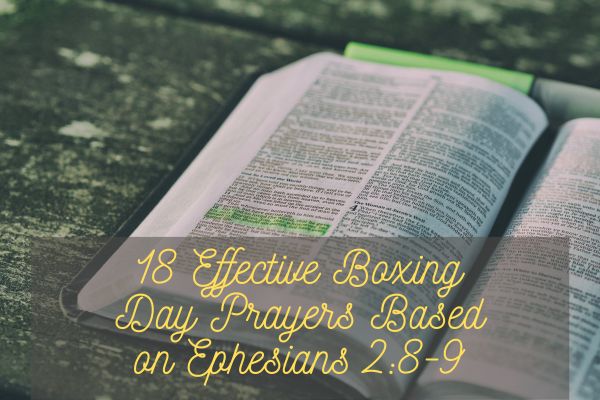Prayer, an age-old practice, is a universal bridge that connects the finite with the infinite, the earthly with the divine. Regardless of one’s faith or belief system, the act of prayer holds profound significance. However, a common question that often arises is, “Does God answer all prayers?”
In this exploration, “Does God Answer All Prayers? – 7 Ways” we delve into the various facets of prayer, the nature of God, and the ways in which our petitions are answered.
Does God Answer All Prayers? – 7 Ways
Prayer, in its simplest form, is a heartfelt conversation with the divine. It’s a practice deeply embedded in the fabric of many religions, serving as a means to seek guidance, offer gratitude, or request divine intervention.
The Nature of God
To understand whether God answers all prayers, we must consider the nature of the divine being. Different belief systems portray God in various ways – some as all-knowing and all-powerful, while others emphasize a more personal connection.
The Purpose of Prayer
People pray for a myriad of reasons – from seeking solutions to life’s challenges to expressing gratitude for blessings received. Aligning our personal intentions with divine purposes is a crucial aspect of prayer.
Conditions for Answered Prayers
There are conditions or prerequisites that can impact whether our prayers are answered. One such condition is found in James 4:3, which states, “When you ask, you do not receive, because you ask with wrong motives.” God considers our heart’s intentions when responding to our requests.
Seven Ways God Answers Prayers
1. Direct ‘Yes’
In some cases, prayers are answered with a resounding ‘yes’ almost immediately. These instances are often attributed to strong faith and alignment with God’s will.
2. Delayed ‘Yes’
Divine timing plays a significant role in prayer responses. A ‘yes’ may be delayed to teach patience, and trust, and to align events for a more profound impact.
3. Conditional ‘Yes’
God sometimes answers prayers with conditions attached. Fulfilling these conditions becomes crucial for the realization of the desired outcome.
4. ‘No’ for Our Good
God’s wisdom often leads to ‘no’ answers, which may seem disappointing at first but can ultimately lead to unforeseen blessings.
5. Not Now
There are times when the answer is ‘not now.’ This period of waiting can be an opportunity for personal growth and development.
6. Change of Heart
Through prayer, God can transform our desires, aligning them with His divine will, which may differ from our initial requests.
7. Through Alternative Paths
Sometimes, answered prayers take unexpected routes, leading us through alternative paths that we hadn’t anticipated. Trusting God’s guidance is paramount in such situations.
Prayer with Faith
Faith plays a pivotal role in the effectiveness of prayer. In Matthew 21:22, Jesus says, “If you believe, you will receive whatever you ask for in prayer.” This highlights that sincere and unwavering faith can lead to answered prayers.
The Role of Persistence
Persistence in prayer can also influence the outcome. Jesus Himself encouraged persistence in Luke 18:1, saying, “Then Jesus told his disciples a parable to show them that they should always pray and not give up.” This parable underscores the importance of perseverance in prayer.
The Role of Faith and Belief
The effectiveness of prayer often hinges on faith and belief. Countless stories attest to the profound impact of unwavering faith in the fulfillment of petitions.
Praying According to God’s Word
Another crucial aspect is aligning our prayers with God’s Word. When we pray in accordance with Scripture, we are more likely to receive answers. 1 John 5:15 reaffirms this: “And if we know that he hears us—whatever we ask—we know that we have what we asked of him.”
God’s Timing
God’s timing is often different from ours. In 2 Peter 3:8, we are reminded, “But do not forget this one thing, dear friends: With the Lord, a day is like a thousand years, and a thousand years are like a day.” Sometimes, what we perceive as unanswered prayers may simply be a matter of waiting for God’s perfect timing.
Unanswered Prayers
It’s essential to acknowledge that not all prayers receive the answers we desire. This can be challenging and disheartening, but we are not alone in this experience. Even the Apostle Paul faced unanswered prayer, as seen in 2 Corinthians 12:8-9 when he prayed three times for a thorn in the flesh to be removed, but it remained. In such moments, we must trust in God’s wisdom.
Common Misconceptions
There are misconceptions surrounding prayer and its outcomes. These myths often cloud our understanding of God’s responses to our supplications.
Conclusion
In conclusion, the question, “Does God answer all prayers?” can be answered with a resounding ‘yes’ when we consider the multitude of ways in which God responds. These responses are often tailored to our individual needs and the divine plan. Whether through a direct ‘yes,’ a delayed response, or even a ‘no,’ God’s answers are manifestations of His boundless love and wisdom. Therefore, let us continue to pray with faith, trust, and gratitude, knowing that our petitions are heard and answered in ways that are ultimately for our highest good.
FAQs
1. Why do some prayers seem to go unanswered?
Not all prayers go unanswered; rather, the answers may not always align with our immediate desires. God’s wisdom guides the responses.
2. Is there a specific way to pray for better results?
While there is no one-size-fits-all approach to prayer, maintaining faith, sincerity, and alignment with God’s will can enhance the effectiveness of your prayers.
3. How can one strengthen their faith in prayer?
Faith can be strengthened through regular prayer, meditation, studying sacred texts, and surrounding oneself with a supportive spiritual community.







